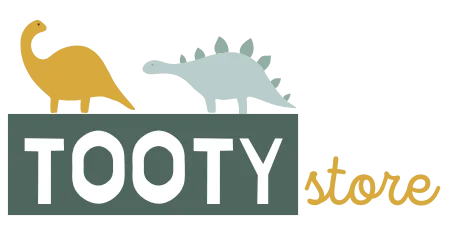Table of Contents
ToggleIn a world where teens are glued to their screens, why not turn that screen time into something productive? Educational apps for teens are like the secret sauce to making learning fun and engaging. Forget the days of boring textbooks and endless lectures; it’s time for a digital revolution in education that even the most reluctant learners can’t resist.
Overview of Educational Apps for Teens
Educational apps for teens provide interactive platforms that support various learning styles. Such apps often incorporate gamification to engage users, making subjects like math, science, and language arts more enjoyable. An extensive selection of applications exists, catering to subjects ranging from coding to history.
Many apps offer personalized learning experiences, adapting to individual skill levels and preferences. Teens benefit from tailored content that enhances comprehension and retention. Research shows that interactive features in apps lead to greater student performance and involvement.
Popular educational apps include Khan Academy, which offers a wide range of subjects and resources. Quizlet facilitates studying through flashcards and quizzes, helping teens prepare for exams effectively. Another noteworthy app is Duolingo, which makes learning new languages accessible and enjoyable.
Access to these resources extends beyond the classroom, enabling teens to learn at their convenience. Students often find that they can easily incorporate learning into their daily routines with apps. Real-time feedback and interactive elements play crucial roles in maintaining motivation during the learning process.
Teens can also connect with peers and educators through these platforms, fostering a collaborative learning environment. Learning communities formed on these apps often enhance knowledge-sharing and engagement. As educational apps continue to evolve, they remain vital tools in enhancing educational experiences for teens, merging technology with traditional learning.
Benefits of Using Educational Apps

Educational apps provide numerous advantages that contribute to effective learning for teens. They enhance traditional educational experiences by promoting interactive and personalized learning.
Enhanced Learning Experience
Educational apps create an engaging atmosphere where concepts come to life. Customizable learning paths allow users to explore subjects at their own pace, making lessons more relatable. Integrative features, like quizzes and videos, cater to various learning styles, ensuring that each teen finds a method that suits them best. Adaptable assessments track progress, helping users identify strengths and weaknesses in real time. Overall, these dynamic resources transform standard curriculum into innovative, enjoyable experiences that motivate teens to delve deeper into their studies.
Increased Engagement
Engagement levels soar with educational apps, drawing teens into their studies. Gamification elements, such as rewards and challenges, keep learners interested, turning difficult subjects into exciting ventures. Interactive tasks activate critical thinking, encouraging exploration beyond surface-level understanding. Real-time feedback reinforces learning by allowing users to make immediate improvements. Collaborative features, including sharing with peers, foster a sense of community while enhancing the learning process. Overall, educational apps make learning an interactive and enjoyable journey for teens.
Popular Educational Apps for Teens
A variety of educational apps provide valuable resources for teens. These applications enhance learning and cater to different subjects and interests.
Subject-Specific Apps
Subject-specific apps focus on enhancing knowledge in particular areas. For example, Khan Academy offers an extensive range of lessons in math, science, and humanities. Duolingo immerses users in language learning through engaging activities, making the process enjoyable. Photomath helps students solve mathematical problems by using the camera on a smartphone, offering step-by-step guides. Quizlet transforms studying with flashcards and games, catering to various subjects effectively. Each app adapts to different learning styles, ensuring that teens grasp concepts at their own pace.
General Learning Platforms
General learning platforms consolidate multiple subjects into one app. Coursera connects users with online courses from universities around the world, covering a wide array of topics. Through Edmodo, students engage with educators and classmates, fostering collaboration and discussion on different subjects. Evernote aids in organization, allowing teens to manage notes and tasks effectively. TED-Ed provides educational videos that spark curiosity, offering ideas and insights across diverse fields. These platforms enhance the learning experience by combining resources and encouraging exploration.
Factors to Consider When Choosing Apps
Selecting educational apps for teens involves several important factors. Identifying age appropriateness helps ensure content resonates with the intended user.
Age Appropriateness
Teenagers engage better with content tailored to their developmental stage. Apps designed for younger users may not challenge teens sufficiently, leading to disengagement. Conversely, apps that target older audiences can overwhelm teens with complexity. Checking the recommended age range provides a guide to suitable options. Platforms often indicate whether they are for middle or high school levels, clarifying which users will benefit most from their offerings.
User Reviews and Ratings
Evaluating user reviews and ratings plays a critical role in determining app quality. High ratings signal positive experiences from other users, while constructive feedback can highlight potential issues. Teens and parents both turn to app stores for insights before making selections. Consider checking multiple sources, as varied feedback can provide a comprehensive view of an app’s strengths and weaknesses. Positive reviews often emphasize engaging features, interactive content, and educational impact, making these aspects essential when comparing options.
The rise of educational apps marks a significant shift in how teens engage with learning. By transforming traditional education methods into interactive and enjoyable experiences, these apps cater to diverse learning styles and preferences. With a vast array of options available, teens can explore subjects that spark their interest while receiving personalized support.
As technology continues to evolve, the potential for educational apps to enhance learning remains immense. These tools not only promote academic success but also foster collaboration and community among users. Embracing these innovations can lead to a more engaging and effective educational journey for teens, making learning a dynamic and enjoyable part of their daily lives.




